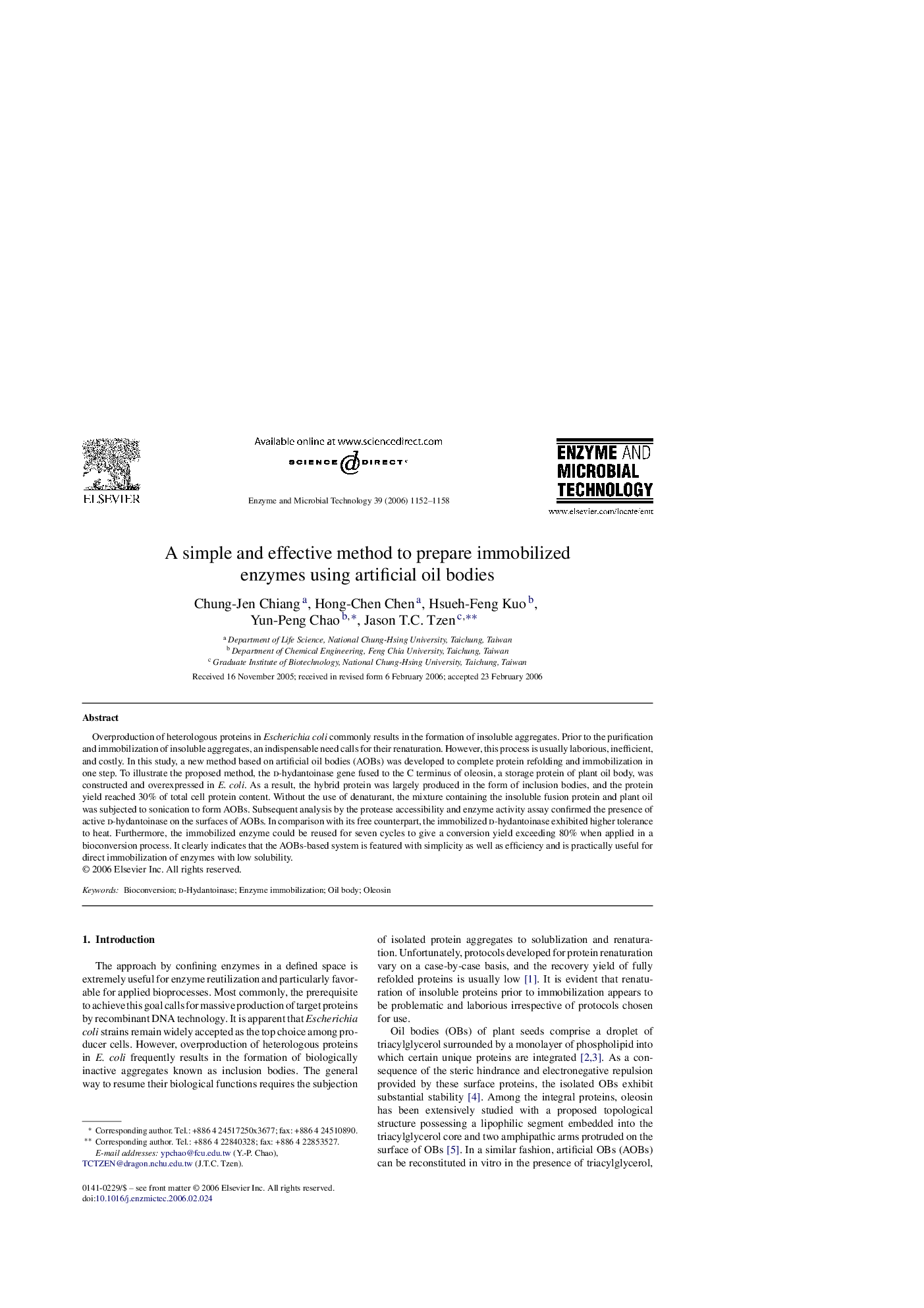| Article ID | Journal | Published Year | Pages | File Type |
|---|---|---|---|---|
| 18678 | Enzyme and Microbial Technology | 2006 | 7 Pages |
Overproduction of heterologous proteins in Escherichia coli commonly results in the formation of insoluble aggregates. Prior to the purification and immobilization of insoluble aggregates, an indispensable need calls for their renaturation. However, this process is usually laborious, inefficient, and costly. In this study, a new method based on artificial oil bodies (AOBs) was developed to complete protein refolding and immobilization in one step. To illustrate the proposed method, the d-hydantoinase gene fused to the C terminus of oleosin, a storage protein of plant oil body, was constructed and overexpressed in E. coli. As a result, the hybrid protein was largely produced in the form of inclusion bodies, and the protein yield reached 30% of total cell protein content. Without the use of denaturant, the mixture containing the insoluble fusion protein and plant oil was subjected to sonication to form AOBs. Subsequent analysis by the protease accessibility and enzyme activity assay confirmed the presence of active d-hydantoinase on the surfaces of AOBs. In comparison with its free counterpart, the immobilized d-hydantoinase exhibited higher tolerance to heat. Furthermore, the immobilized enzyme could be reused for seven cycles to give a conversion yield exceeding 80% when applied in a bioconversion process. It clearly indicates that the AOBs-based system is featured with simplicity as well as efficiency and is practically useful for direct immobilization of enzymes with low solubility.
